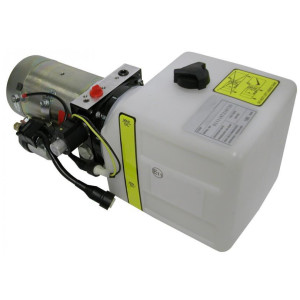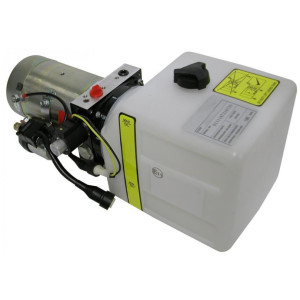Hydraulic units / Small hydraulic units
The Efficiency of Hydraulic Units
Hydraulic units are indispensable components in hydraulic systems, playing a central role in generating and transmitting hydraulic energy. The efficiency of these units is crucial for the productivity and performance of the entire system. A closer look at their structure, functions, application areas, and benefits highlights their importance in various industries.
A typical hydraulic unit consists of several main components. The drive motor is responsible for driving the hydraulic pump, which in turn generates the hydraulic pressure required for the movement of cylinders, valves, and other hydraulic components. The hydraulic fluid, usually oil, is stored in the hydraulic fluid reservoir. The drive motor is connected to the hydraulic pump and drives it via a shaft. Depending on the design, the motor and pump can be mounted either on or in the reservoir submerged in oil.
Hydraulic units are used in a variety of applications. In the construction machinery industry, they are essential in excavators, cranes, and bulldozers. They are also used in agricultural machinery such as tractors and combine harvesters. Furthermore, they are utilized in industrial plants, aerospace, and the automotive industry.
Modern hydraulic units offer numerous benefits. They are energy-efficient and quiet, increasing their environmental friendliness. Some models are networked, allowing for remote monitoring and control, enhancing maintenance and operational efficiency. By using standard components from mass production, they are versatile and easy to maintain.
Overall, hydraulic units are essential components that significantly influence the functionality and efficiency of hydraulic systems. Their versatility, efficiency, and continuous development make them an indispensable part of modern technologies in various industrial sectors.




